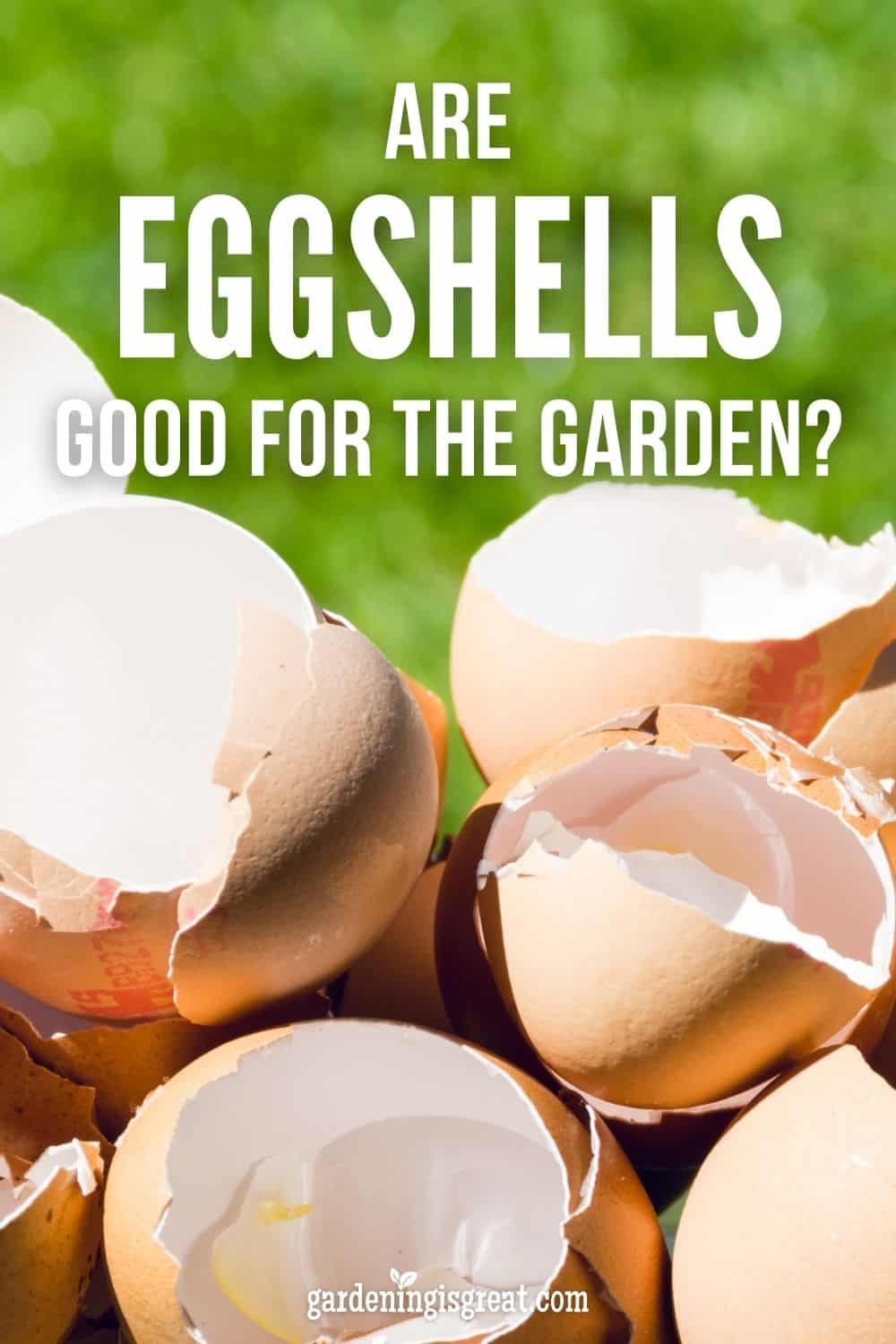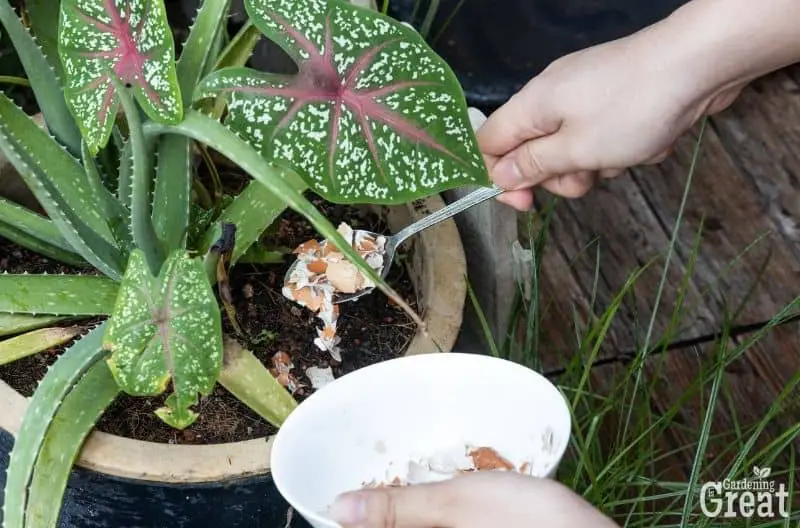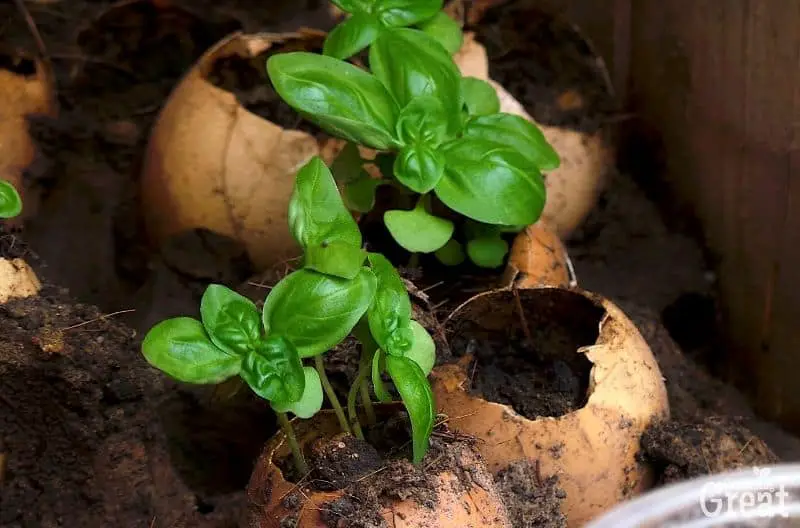Are Eggshells Good for Vegetable Gardens?
There are several myths that surround the use of eggshells and one question that is popularly asked is ‘are eggshells good for vegetable gardens?
You might be surprised to hear that they are! Eggshells are full of nutrients beneficial to your vegetable garden and provide a great way to use this otherwise thrown-out item.

As eggshells naturally decompose, they cause no harm to your plants. As they decompose, their nutrients are released and support your vegetables to grow stronger and healthier.
Let’s dive in and take a look at some of the benefits of using eggshells in your vegetable garden.
Why use eggshells in your vegetable garden?
Eggshells are indeed good for your vegetable garden. They can be used for various purposes such as pest control and nutrients for your plants.
Pest Control
Growing vegetables always tends to attract a range of garden pests from deer to slugs. Once they are in your vegetable patch, it is really difficult to protect your plants.
By crushing eggshells and placing them around your plants, the smell helps to deter larger pests such as deer.
For smaller garden pests, such as slugs and snails, it can be a deterrent. However, eggshells alone will not prevent them from accessing your vegetables.
Mulch
A layer of mulch can help to prevent weeds from growing in the soil around your vegetables. Mulch is a layer of loose coverings and can be made from bark, wood chippings, moss, leaves, or eggshells.
If using eggshells as mulch, ensure to grind the shells and have enough to create a thick layer over your soil.
Fertilizer
Eggshells are made up of 34% calcium and also contain magnesium, potassium, phosphorus, and nitrogen.
Adding them to your soil can act as a natural fertilizer for your plants.

However, eggshells are incredibly slow to decompose, so in order for your plants to gain the calcium and other nutrients, you need to ensure to crush and grind your eggshells first.
What vegetables can you use eggshells on?
As eggshells are made up mostly of calcium, they are a beneficial nutrient for all vegetables. The calcium helps to strengthen and thicken plant cell walls.
For your vegetables to access the nutrients from eggshells, ensure they are ground up and crushed first. Vegetables cannot access the nutrients until the eggshells decompose. Hence, by crushing them, they will decompose quickly and benefit your vegetables as they grow.
Top tip for using eggshells in your vegetable garden
When using eggshells, it is important to consider whether or not you have pets at home. Eggshells are poisonous to dogs, so it is essential to prepare your eggshells in case they are consumed by your pets at home.
To prepare your eggshells, rinse them out thoroughly and then dry them. Eggshells can contain salmonella and so need to be sterilized in the oven before being used in your garden. Ensure to cook them for 30 minutes at 200F.
Once they are sterile, they are safe to crush and grind to use in your vegetable garden.
How do you use eggshells in your vegetable garden?
When using eggshells in your vegetable garden, you can either create a wet spray or use them dry.
To create a wet fertilizer spray, soak your eggshells in water for four weeks. You can then use this mixture to spray your vegetables. A wet fertilizer works well for vegetables that are protected in a greenhouse rather than outside as the smell attracts rodents that would then make the most of your vegetable garden.
For a dry fertilizer, crush the eggshells into a powder. This helps them to release their nutrients into the soil around your vegetables as they decompose.
What are good natural alternatives to using eggshells?
There are a number of natural alternatives you can find in your kitchen that can be used in your vegetable garden instead of eggshells.
Coffee Grounds
Coffee grounds are full of nutrients beneficial to plants such as calcium, potassium, nitrogen, and magnesium.
For maximum effect, rinse your coffee grounds to help them achieve a neutral pH level of 6.5 so they do not increase the acidity of the soil around your vegetables.
Coffee grounds are often used as a natural fertilizer and help to improve drainage. They can also be added to compost as they provide nitrogen.
Milk
Milk is also a good alternative to eggshells as a fertilizer in your garden. Milk is high in calcium and can help to strengthen your vegetables.
In order to use milk as a fertilizer, create a mixture of half water and half milk. This can be sprayed on the soil above the plants’ roots.
Banana Peel
Banana peel makes a great natural fertilizer for your garden as it contains 42% potassium, a key component of fertilizer.
Potassium is important as it helps strengthen plants cells and fights against disease.
To use banana peel, place them in a sealable container and fill with water. Ensure the water covers the banana peels completely otherwise they will start to turn moldy. Let them sit in the water for a week and then use the water to spray over the soil around your vegetables.

Eggshells are good to use in your vegetable gardens. They are an excellent natural source of several nutrients such as calcium, nitrogen, and potassium.
However, you must ensure to prepare eggshells properly so as to not attract rodents or cause harm to your household pets.
Using eggshells provides natural benefits to your vegetable garden without the use of harmful and toxic chemicals.
For more information on which household items you can use to benefit your garden, take a look at these posts:

